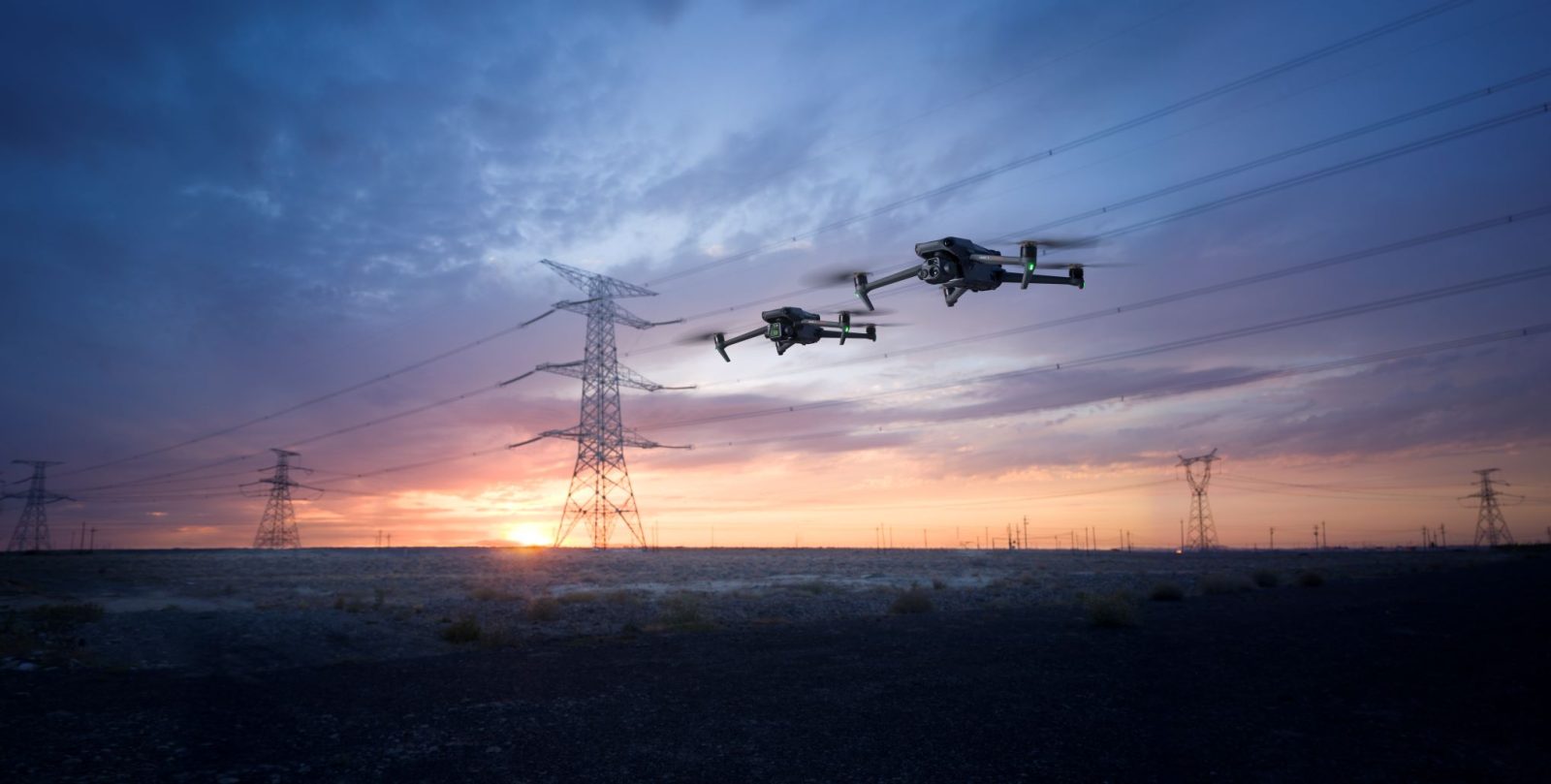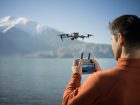
Here is what’s happening with the potential ban of DJI drones in the US, and what drone pilots can expect in the weeks to come…
The Countering CCP Drones Act aims to restrict the Federal Communications Commission (FCC) from issuing new licenses to Chinese drone manufacturer DJI and its affiliates. It is part of the National Defense Authorization Act (NDAA) FY2025, a complex legislative package addressing various aspects of defense and security policy.
Attaching the Countering CCP Drones Act to the NDAA is kind of a back door for the bill to its path to becoming law because it has struggled to obtain support on its own.
The proponents of the Act argue that security concerns necessitate these measures. Critics question the urgency, noting that if security were a genuine immediate threat, more drastic actions would have been taken sooner. The delayed response undermines the narrative of an imminent security risk, suggesting political motivations may be at play.
The fight goes to Senate, and can stay there for months
For now, the potential law has passed the House but awaits Senate approval and reconciliation. If it passes, it will land on President Joe Biden’s desk for final approval. However, the process of Senate approving its own version of the NDAA and the final reconciliation between the two versions can take weeks, if not months, with the final bill differing significantly from the initial drafts.
And this is why, it’s important to remember that there’s still a long way to go for a complete ban on DJI drones in the US, if at all.
New: New DJI Air 3S leaks amid looming US drone ban
There was never any doubt that the House would pass its version of the NDAA with the Countering CCP Drones Act. It was proposed by Elise Stefanik, a Republican representative from New York, who, in addition to getting DJI added to the FCC’s Covered List, has also voted in favor a full teardown of Chinese drones to ensure no US technology is advancing their capabilities and an investigation into Chinese drone companies for inclusion on the Chinese Military Company list.
On a broader level, Republicans have added a lot of amendments to the NDAA that are surely going to be opposed in a Democratic-controlled Senate. The 217-199 vote in the House on Friday had only six Democrats favoring the measure, with leaders of a coalition of House Democrats, Reps. Marilyn Strickland (D-WA) and Jason Crow (D-CO), commenting:
House Republicans have once again put their own extremist agenda over strengthening US national security. Through their hyper-partisan amendment process, they transformed a commonsense, bipartisan package into one laden with extremist policy riders and poison pills.
Drone users have also known that to make their voices heard and for elected leaders to listen to what they have to say, they need to take the fight to the Senate. The Airborne Public Safety Association, Law Enforcement Drone Association, and DRONERESPONDERS – which represent over 6,000 agencies, police and fire agencies with drone programs across the US – have written a letter to the members of the Senate Armed Services Committee to oppose the inclusion of the Countering CCP Drones Act in the Senate version of the NDAA.
According to these organizations, the Countering CCP Drone Act is harmful because it overlooks the immediate operational needs of public safety agencies, compromising first responders’ ability to respond effectively to emergencies. Moreover, the over-reliance of this Act on unproven alternatives to established Chinese drone technology is impractical and dangerous because “simply put, we have not yet reached parity with China’s drone technology.”
The nonprofit organizations say, “We recognize the potential for a balanced approach that avoids the FCC’s outright ban on DJI drones while addressing security concerns regarding Chinese-manufactured drones. This approach should, instead, prohibit bad behavior with technology, instead of banning a platform, which has not demonstrated in any published report evidence of any impropriety and is used effectively in saving lives and deescalating volatile situations every day.”
What happens to current DJI drones?
The other key thing to know is that the current state of legislation will affect the import of new DJI models (Mini 5, Mavic 4, and such) but won’t impact existing drones that have already received FCC approval.
Nonetheless, the FCC has the power to create a process to revoke the equipment authorizations for existing drone models in the future. But it’s unlikely the FCC would do that because how would one even begin to police the millions of drones that are already in peoples’ hands?
Vic Moss, president of the Drone Service Provider Alliance (DSPA) and director of the Drone Advocacy Alliance (DAA), is also quick to stress that fears that current DJI drones will be rendered inoperable (or “bricked”) are unfounded at best. Even if the FCC were to revoke existing licenses, drones already in use would not automatically be bricked. DJI itself would have to initiate such an action, which is highly improbable. Furthermore, bricking drones would require them to be connected to the internet to receive a disabling command, which many users avoid during flights.
You may like: Mini 3 vs. Mini 2 SE vs. Mini 4K: DJI drones compared
Relation with Drones for First Responders Act
Some confusion also has arisen from the conflation of the Countering CCP Drones Act with other proposed legislation, such as the Drones for First Responders Act (DFR Act).
The DFR Act includes provisions to establish a grant funded by the tariffs imposed on Chinese drones. This grant is intended to support the acquisition of non-Chinese drones by first responders. It also aims to gradually phase out the use of Chinese drones and drones with Chinese components over a five-year period.
While the DFR Act is not included in NDAA FY2025, the Airborne Public Safety Association, Law Enforcement Drone Association, and DRONERESPONDERS have addressed it in their letter to the Senate because of how it relates to the Countering CCP Drones Act.
The effectiveness of the grant program depends on the collection of tariffs. If companies like DJI license their technology to US companies and source components from allied nations to avoid tariffs, the funding for these grants could be significantly undermined.
Some may argue that other Chinese drone companies, like Autel, would step in and compensate for the tariff revenue, but that assumption is unrealistic given DJI’s tech prowess and market share.
“It seems that Representative Stefanik’s team is aware of this discrepancy and may be using these legislative proposals more as a strategic posture with public safety agencies than as a viable solution. If companies created in the United States license the technology from DJI and manufacture in allied countries instead of China (which is currently happening), tariffs will not be assessed on those drones and, therefore, will not fund the proposed grant,” the nonprofit outfits say, adding:
Our support for American drone companies remains strong, but we firmly believe these legislative measures do not incentivize innovation or competition. Instead, they create an environment where American companies are not compelled to develop advanced and competitive technologies that meet the unique needs of first responders. Instead, these American companies can benefit from the regulatory capture given to them by legislators whose previous staff members now work for the companies that benefit from the legislation.
DJI drone ban: The bottom line
Overall, the progress of the Countering CCP Drones Act is uncertain amid stiff opposition from those who actually use drones for good. DJI has already taken actions such as not uploading flight logs from anywhere in the US to put data security concerns at ease. And you can continue using your drone(s) without any immediate restrictions due to the proposed legislation. Also, there is no need to dump your current drone or not purchase DJI drones at this time. You will still be able to use them unless future regulations forbid it (which is highly unlikely).
Read more: Your Apple Watch can now control DJI Osmo Mobile gimbals
FTC: We use income earning auto affiliate links. More.






Comments